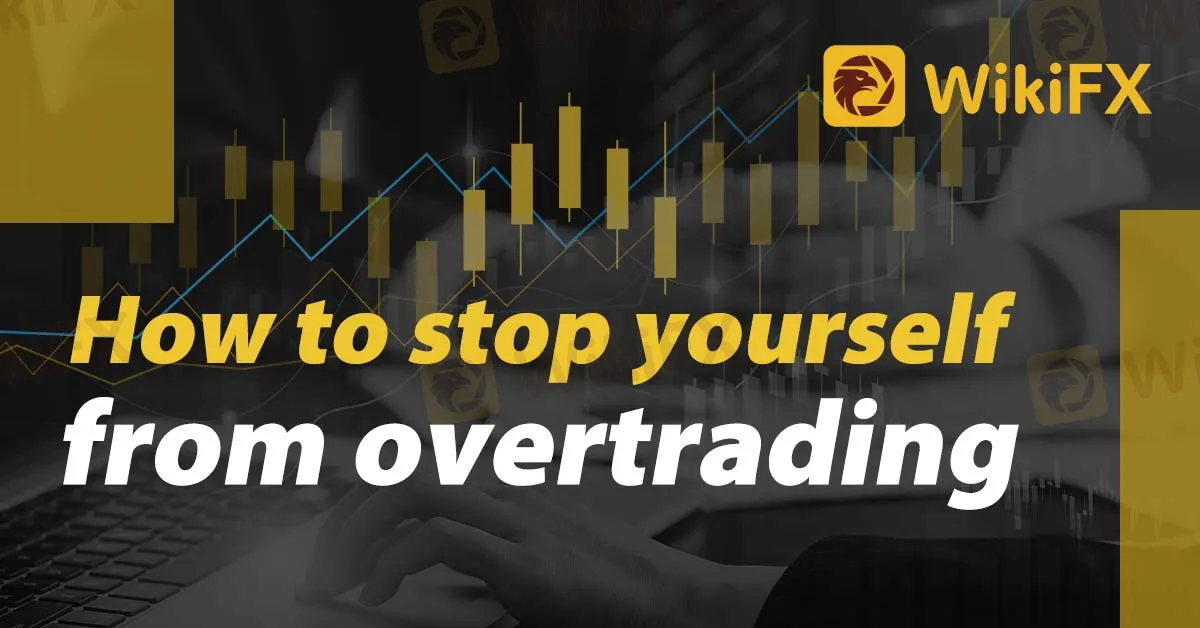简体中文
繁體中文
English
Pусский
日本語
ภาษาไทย
Tiếng Việt
Bahasa Indonesia
Español
हिन्दी
Filippiiniläinen
Français
Deutsch
Português
Türkçe
한국어
العربية
How to stop yourself from over trading
Abstract:Overtrading is a common problem among investors and traders. It occurs when an individual trades excessively, often to the point where it negatively impacts their overall profitability.

Overtrading is a common problem among investors and traders. It occurs when an individual trades excessively, often to the point where it negatively impacts their overall profitability. Overtrading can be caused by several factors, including emotional decisions, impulse trading, and a lack of discipline. Fortunately, there are several steps that you can take in order to reduce your tendency to overtrade.
1. Have a trading plan
Having a trading plan is one of the most important things that you can do to reduce overtrading. Your trading plan should include your risk tolerance, profit goals, and the specific securities or assets that you intend to trade. Having a plan will help you to stay focused and reduce the likelihood of making impulsive decisions.
2. Set specific trading goals
Setting clear trading goals can also help you to reduce overtrading. Its important to have specific goals for each trade, such as a profit target or a stop-loss limit. This will help you to stay on track and avoid making trades that are not in line with your overall trading strategy.
3. Avoid emotional decisions
Emotional decisions are a major cause of overtrading. Its important to remain calm and rational when making trading decisions. Avoid trading based on emotions such as fear or greed. Instead, focus on analyzing the data and making rational decisions based on your trading plan.
4. Use technical analysis
Technical analysis is a powerful tool that can help you to make better trading decisions. It involves analyzing charts and other data to identify trends and patterns. This can help you to make more informed decisions about when to buy or sell a particular security.
5. Use stop-loss orders
Using stop-loss orders can help you to reduce your risk when trading. A stop-loss order is an order to sell a security when it reaches a certain price point. This can help you to limit your losses and avoid overtrading.
6. Take breaks
Taking breaks from trading can also help you to reduce overtrading. Its important to take breaks throughout the day to clear your mind and reduce stress. This will help you to make better decisions and avoid impulse trading.
7. Seek professional help
If you find that you are still struggling with overtrading, it may be helpful to seek professional help. A financial advisor or trading coach can help you to identify the underlying causes of your overtrading and develop a personalized plan to overcome it.
In conclusion, there are several steps that you can take to reduce overtrading. By having a trading plan, setting specific goals, avoiding emotional decisions, using technical analysis, using stop-loss orders, taking breaks, and seeking professional help, you can improve your trading performance and reduce the negative impact of overtrading. Remember, successful trading requires a combination of knowledge, discipline, and self-control. So, always trade with caution and make informed decisions.

Disclaimer:
The views in this article only represent the author's personal views, and do not constitute investment advice on this platform. This platform does not guarantee the accuracy, completeness and timeliness of the information in the article, and will not be liable for any loss caused by the use of or reliance on the information in the article.
Read more

Unlocking the Power of Algo Trading: Benefits and Limitation
Algorithmic trading merges speed, data, and automation—but can it outsmart human intuition and market chaos? Explore its power and pitfalls.

Do This ONE Thing to Transform Your Trading Performance Forever
The story is all too familiar. You start trading with high hopes, make some quick profits, and feel like you've finally cracked the code. But then, just as fast as your gains came, they disappear. Your account balance dwindles, and soon you’re left wondering what went wrong. Worse still, fear and confusion creep in, making every new trade a stressful gamble rather than a calculated decision. If this cycle sounds familiar, you’re not alone.

This FREE App Is Helping Millions Avoid Financial Scams
Fraudulent brokers, Ponzi schemes, and deceptive trading platforms are on the rise, making it increasingly difficult to distinguish between legitimate and illicit financial services. Fortunately, there’s a powerful, free tool designed to help users identify and avoid scams before it’s too late—WikiFX.

Forex Explained in 60 Seconds: How It Works & Who Profits
Before diving into the forex market, it’s crucial to understand its mechanics, risks, and profit potential. Without a clear grasp of how forex operates, you risk losing money instead of making it. Here’s a concise breakdown to help you navigate this dynamic financial market.
WikiFX Broker
Latest News
Why Are Financial Firms Adopting Stablecoins to Enhance Services and Stability?
Experienced Forex Traders Usually Do This Before Making a Lot of Money
Octa vs XM:Face-Off: A Detailed Comparison
When High Returns Go Wrong: How a Finance Manager Lost RM364,000
Bridging Trust, Exploring Best—WikiEXPO Hong Kong 2025 Wraps Up Spectacularly
Interactive Brokers Expands Crypto Trading with Solana, XRP, Cardano, and Dogecoin
Fidelity Investments Explores Stablecoin Innovation in Digital Assets Sector
Why More People Are Trading Online Today?
SEC Ends Crypto.com Probe, No Action Taken by Regulator
Broker Comparison: FXTM vs XM
Currency Calculator







